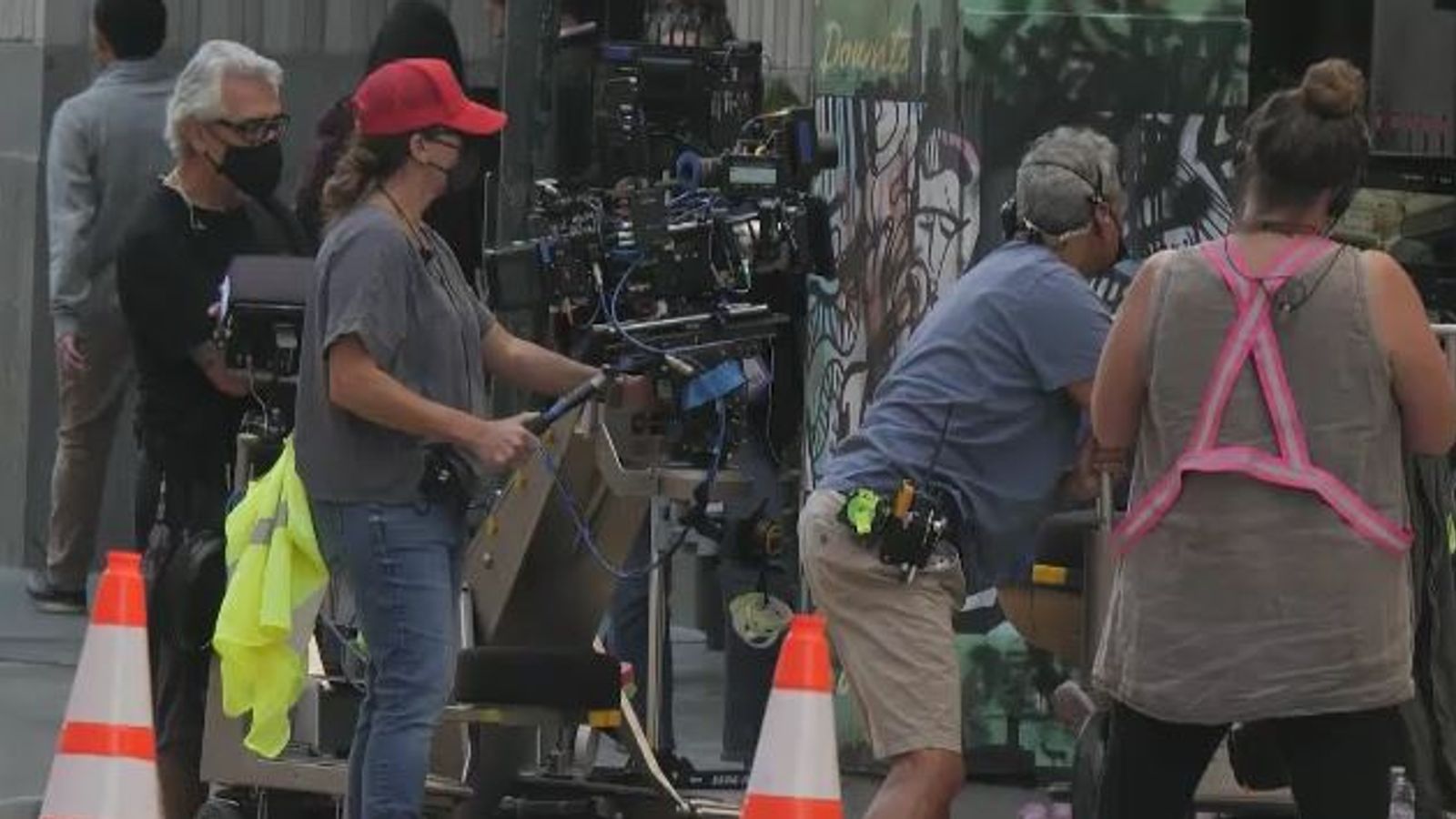Film and TV production in the US could come to a standstill after behind-the-scenes workers voted overwhelmingly in favour of strike action.
The International Alliance of Theatrical Stage Employees said that nearly 99% of registered members who participated – or 52,706 people – voted in favour of industrial action.
IATSE president Matthew Loeb said: “I hope that the studios will see and understand the resolve of our members.
“The ball is in their court. If they want to avoid a strike, they will return to the bargaining table and make us a reasonable offer.”
The union represents the behind-the-scenes workers, camera operators, stage hands, set designers, dozens of jobs in the armies it takes to create our favourite shows and movies.
Members are unhappy at what they see as longer shifts, poor working conditions and low pay.
IATSE members have received support from across the entertainment industry and members have flooded the Instagram account @ia_stories with their unhappy tales of life in the business.
No Time To Die smashes box office records with £25m haul in UK and Ireland in just three days
Casualty producers announce that show will get its first transgender character in a continuing role
Shannen Doherty awarded $6.3m in lawsuit over fire-damaged home
Cinematographer Peyton Skelton told Sky News’s Greg Milam last week that he had crashed his car driving home from work early on a Saturday morning after an 80-hour week.
“The toll on the body and toll on the mentality of each worker is great,” he said.
Members often talk about Friday work rolling into Saturday mornings, the so-called “fraturday” shift.
Union members are also unhappy that many discounted pay rates agreed with streaming services when they were new players on the production scene are still in force despite the explosive growth of those firms.
“Flash forward 12 years later and streaming is obviously the thing, it’s the main game in town and it’s the future but it’s also the present,” said Gene Maddaus of Variety magazine.
“Big budget stuff is happening under these lower wage contracts and major streaming companies are using these lower wages and the unions are saying this is basically a loophole at this point.”
It is 14 years since writers in Hollywood went on strike for 14 weeks, a shutdown that was estimated to have cost the industry hundreds of millions of dollars.
This strike would be far more wide-ranging, with members from almost every area and stage of production.
A handful of TV firms on different contracts would not be affected.
The Alliance of Motion Picture and Television Producers, which represents the major studios, said it has put forward an offer to meet the union’s demands.
It said on Monday: “A deal can be made at the bargaining table, but it will require both parties working together in good faith with a willingness to compromise and to explore new solutions to resolve the open issues.”
Negotiations are likely to continue, despite the “yes” vote.






















